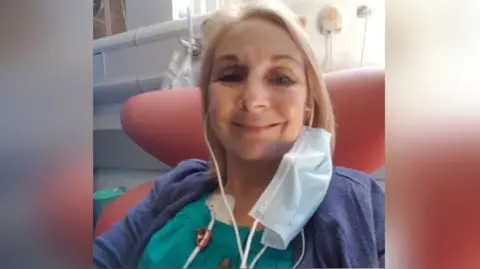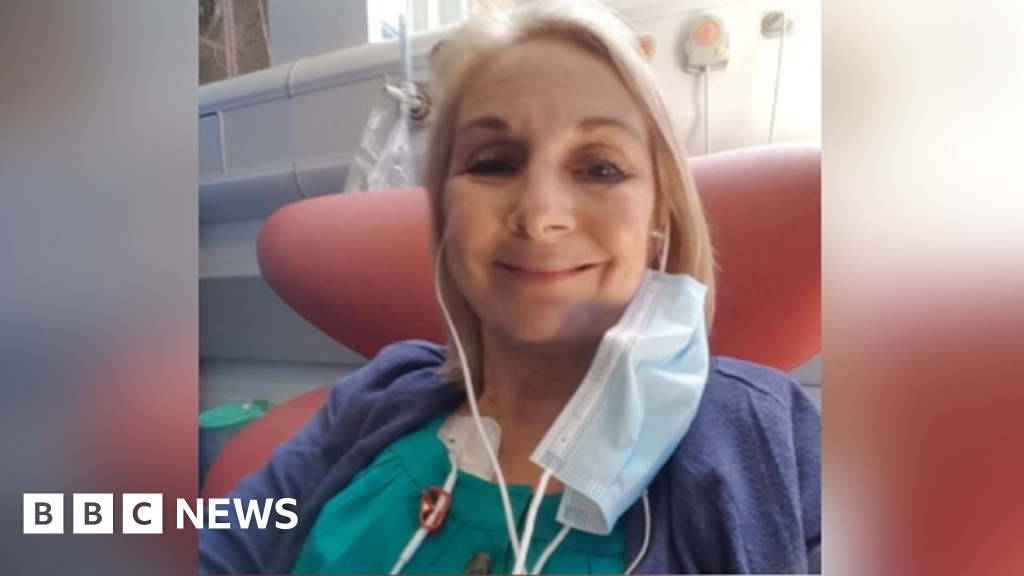Caroline GallWest Midlands
 Sue Harley
Sue HarleyA Birmingham grandmother said she can live her life as “if I haven’t got cancer”, after the breakthrough drug she is taking became available on the NHS.
Sue Harley was diagnosed with Myeloma, an incurable blood cancer, in 2017 and after running out of treatment options took Talquetamab two years ago, direct from the drug manufacturer.
She has since been in remission and after a long campaign, commissioners have now approved the drug’s general use, with up to 800 patients potentially benefitting each year.
“For now, I feel like I can live my life like a normal person. This is my sixth line of treatment and there’s that hope that this is the thing that’s going to work for me forever,” she said.
Myeloma is the third most common type of blood cancer, but can be difficult to detect as symptoms are often linked to general ageing or minor conditions, charity Myeloma UK said.
When Ms Harley was diagnosed she had debilitating back pain and could barely walk.
She tried several treatments, but nothing kept her in remission for long until she was offered the new drug via a compassionate use scheme, set up for patients who have no other suitable options so they can access treatments which are not available on the NHS.
 Sue Harley
Sue Harley“It’s made it that I can just my life almost as if I haven’t got cancer,” she said.
“So I would want to do the things that I would want to do and I can plan to do things as well and that makes a difference.”
She was part of a campaign for the drug to be approved by The National Institute for Health and Care Excellence (NICE) and said she was now so pleased it had been made available from this week.
“I wasn’t really aware before that NICE listened to patients in that way,” she added.
“The fact that I was at the committee meetings and they did actually ask my opinion and how I felt this would impact patients, that was really important.
“For patients, what we really want is to have choices and options and some hope for the future.”
Guy Pratt, consultant haematologist at University’s Hospital’s Birmingham, said the drug was “another example of the advances we’re making in treating blood cancers”.
“It’s allowed her to live a normal life at home with a really good quality of life and I’m really grateful that we now have access to it for all our patients with multiple myeloma,” he said.

